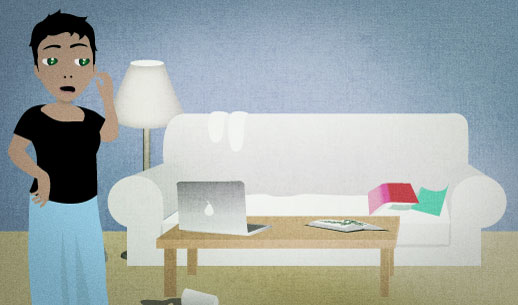“Guys, help me straighten up a little please.”
Your sister and her family are coming over to your house to visit. Your living room is a little messy. You ask your children to help you clean it. And you ask this.
Guys, help me straighten up a little please.
Want Video and Sound? Follow us on YouTube

Help me (do something) please
This is a very straightforward way of asking for help. Use this when you're speaking to someone you're close to, like a family member. Avoid asking strangers and friends for help this way. A better way to ask is:
Could you help me with this?
Adding "please" to the end of your request actually makes it sound a little less polite in this case. Here are some other examples of "please" used in an angry or impolite way:
straighten up (a room)
"Straightening up" is a type of cleaning. When you "straighten up", you pick up things that are lying around like clothes, dishes, books, pieces of paper, and so on. You put things back in their proper place, so that the room looks organized.
You can use "straighten up" with an object:
Lance, straighten up your room please.
Or you can use it without an object:
Sorry, I didn't have time to straighten up.
guys
In English, there's not a really good word for addressing a group of people. If you're talking to one person you say "you":
How are you?
But there's some disagreement about what to say to a group of people. English speakers use different expressions depending on the region and dialect, but one common expression is "guys". For example, at a restaurant with a large group of friends you can say:
Hey guys, are you ready to order?
"Guys" technically means a group of men, but it's usually OK to use it for mixed groups of men and women, or even for groups of all women.
In very formal situations, avoid calling a group of people "guys". Instead, use a phrase like "everyone":
Everyone, thank you for coming.
